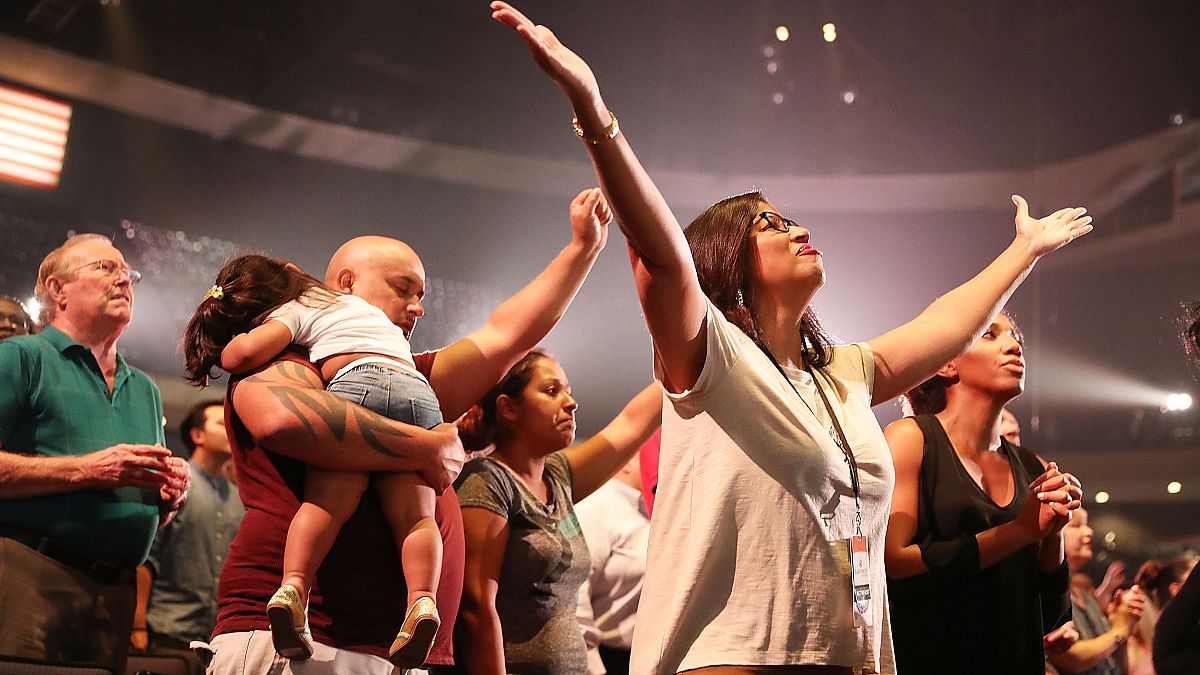An LGBTQ-affirming policy "means that the church will ordain, hire, marry and baptize LGBTQ+ people," according to Church Clarity, which published the report.
None of America's 100 largest churches have LGBTQ-affirming policies, according to recent data published by Church Clarity, an organization that ranks U.S. churches by how clearly they communicate their policies regarding the LGBTQ community.
"An affirming policy means much more than 'welcoming' LGBTQ people," Church Clarity notes on its website. "It means that the church will ordain, hire, marry and baptize LGBTQ people."
Tim Schraeder, an openly gay Christian and the co-founder of Church Clarity, said his organization chose megachurches churches for this new report, because, "We know people look to these churches for influence."
In order to identify which churches to include in the report, Schraeder said his organization turned to Outreach Magazine's popular annual list of America's largest 100 churches. Most of the churches are nondenominational Evangelical, but all of them have more than 5,000 weekly attendees, with the largest, Church of the Highlands in Birmingham, Alabama, having more than 40,000.
In order to assess how LGBTQ-affirming these megachurches are, Schraeder and his team culled information from the churches' official statements, information found on their websites and church sermons. While none were found to be affirming, they were varied in their transparency regarding their LGBTQ policies.
More than half of the 100 churches profiled were categorized as "Unclear: Non-Affirming," indicating that they "do not clearly and accessibly communicate" their LGBTQ policies. Thirty-five percent of the churches were categorized as "Clear: Non-Affirming," indicating they "clearly indicate non-affirming polices in a way that can easily be found on their website." Eleven percent of the megachurches were categorized as "Undisclosed," meaning their "policy cannot be found on their website."
"To not have clarity around LGBTQ policies is devastating," Schraeder said, and it's the reason he co-founded Church Clarity in October 2017.
Schraeder said many churches don't disclose such policies upfront for fear of how they will be perceived, and this, he explained, leads some LGBTQ followers to be misled for a prolonged period of time.
That's where Church Clarity comes in. Since it launched, it has been compiling its own research, along with crowdsourced information from its users, to create a database that scores churches of all Christian denominations across the country on how clearly they communicate their LGBTQ polices. The organization categories churches as Undisclosed, Unclear: Non-Affirming, Unclear: Affirming, Clear: Non-Affirming, Clear: Affirming, Actively Discerning or Verified Clear.
In speaking about the importance of transparency regarding LGBTQ policies, Schraeder referencedthe storyof Nathaniel Totten, a gay Christian who attended the nondenominational Elevation Church in Roanoke, Virginia. Totten was offered a summer position at the church, but the offer was rescinded after he came out to his worship leader.
Totten said the church's non-affirming LGBTQ policy had not been referenced beforehand, and he said he was under the impression the church had a "come as you are" philosophy.
"'Come as you are' is short for 'Come as you are so we can show you the error in your ways,'" Totten said.
Stories like Totten's, Schraeder said, are why the Church Clarity database and the organization's recent report on megachurches are important. He said his organization doesn't actively push for reform within churches, but it does advocate for them to be open about their views so as to avoid potentially damaging situations for LGBTQ people.
"A lot of times, LGBTQ people don't have a problem going to these churches. They say, 'You won't marry me, you won't let me serve in leadership, but at least we know where we stand,'" Schraeder explained.
"It's the ambiguity that's more harmful," he added.
